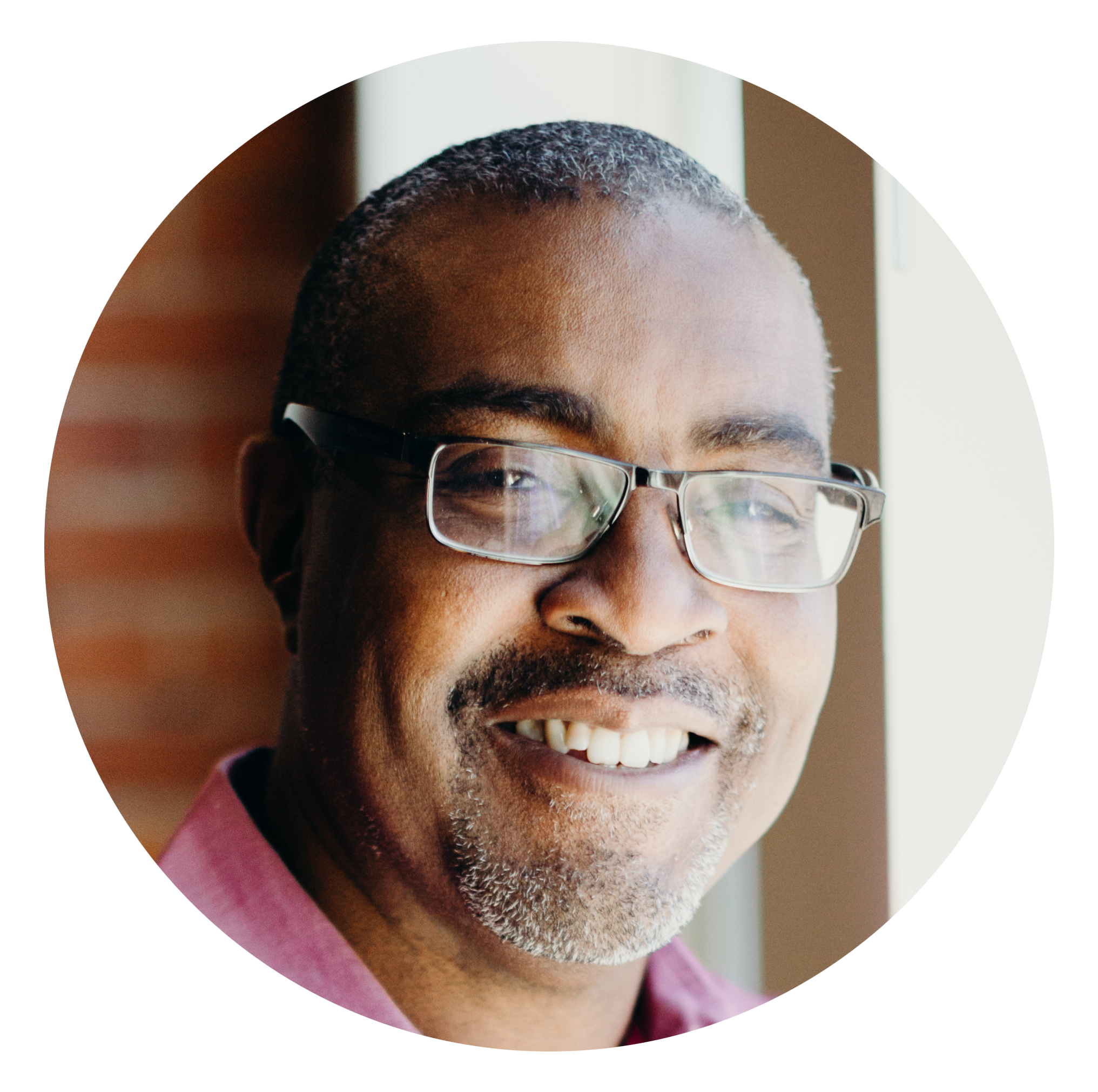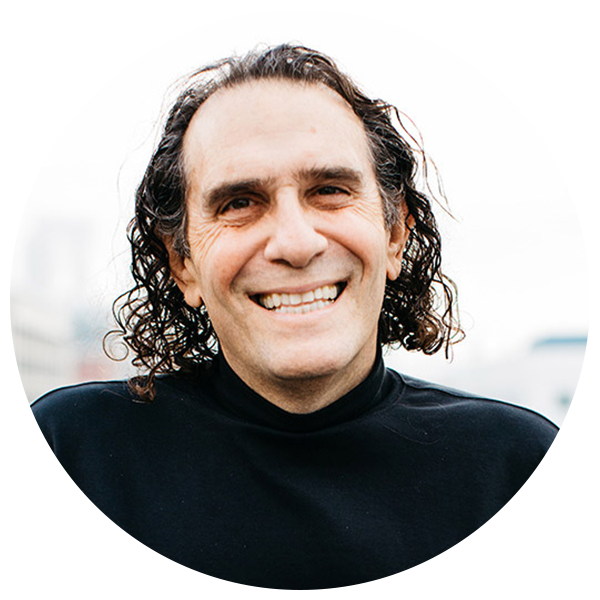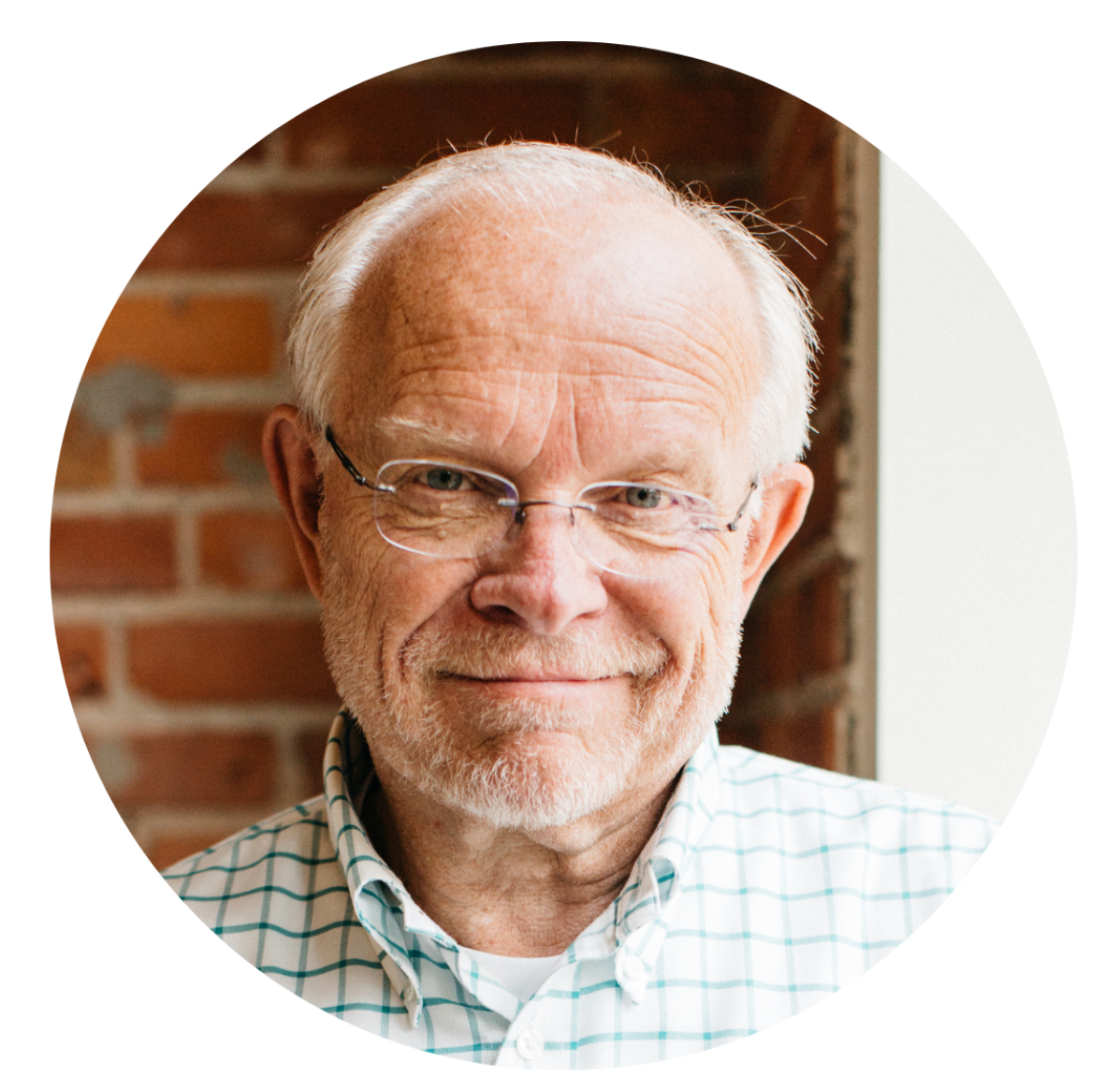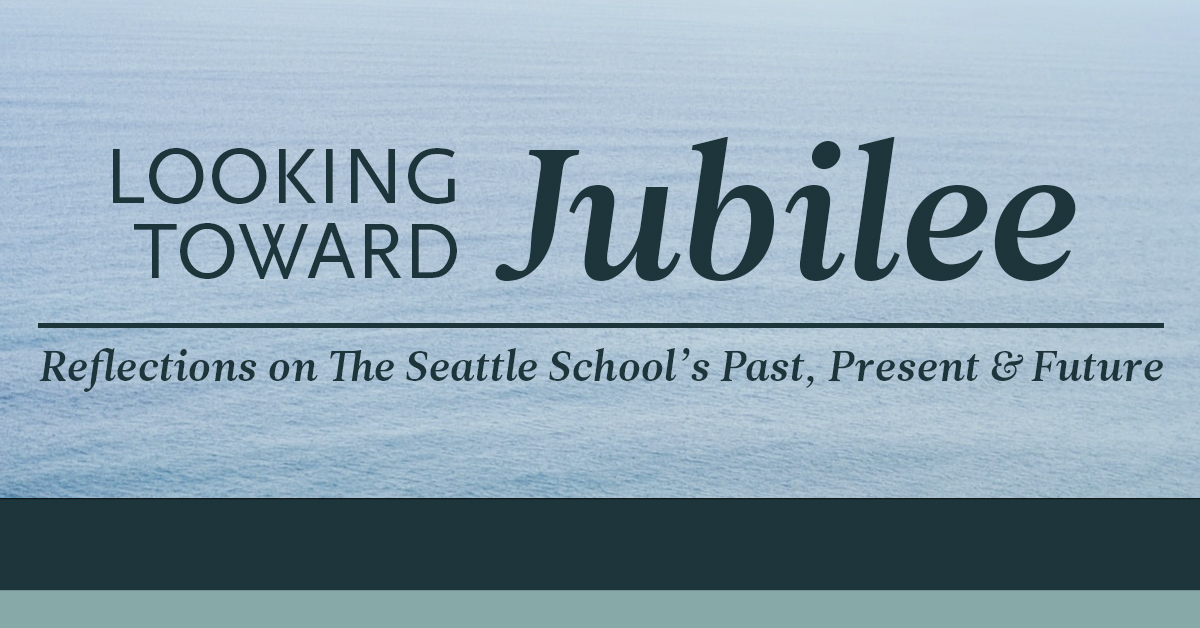In celebration of our 25th year as an institution, Dr. J. Derek McNeil, President and Provost of The Seattle School of Theology & Psychology, invited Dr. Dan Allender, founding President and Professor of Counseling Psychology, and Dr. Keith Anderson, President Emeritus, into a conversation on the past, present, and future of our calling and community. Listen as they describe the original hopes and dreams from our founding days and the continuing values of engaging in discourse, scripture, and stories. In this miniseries so far, the three leaders have discussed the hopes and dreams of the founding days and also the challenges of living into discourse in the present.
In this third podcast of the series, Derek, Dan, and Keith imagine the future as they explore the theme of our anniversary celebration: Looking toward Jubilee.
Our host for this miniseries:

Dr. J. Derek McNeil started at The Seattle School in 2010 as Senior Vice President of Academic Affairs before becoming the fourth President of The Seattle School in 2019. Since joining the institution’s leadership team, Dr. McNeil has been integral to our achievement of regional accreditation, the reimagining of our curriculum and degree programs, the securing of millions in grant funding, and the launching of Center for Transforming Engagement. Prior to his tenure at The Seattle School, he served as faculty in the PsyD program at Wheaton College Graduate School for over 15 years. Dr. McNeil has worked as a clinician in private practice, a diversity advisor, an organizational consultant, and an administrator. His research, writing, and speaking have focused on issues of ethnic and racial socialization, the role of forgiveness in peacemaking, the identity development of African-American males, leadership in living systems, and resilience.
Our guests for this miniseries:

Dr. Dan Allender co-founded The Seattle School of Theology & Psychology to create new training at the intersection of psychology, theology, and culture in order to equip people to serve more effectively in the dynamic contexts of the 21st century. From 2002-2009, Dr. Allender served as the first President of what was then known as Mars Hill Graduate School, navigating the young institution through crucial formative years and transitions. Guided by the support and leadership of The Seattle School, in 2011 Dan Allender, Becky Allender, and Cathy Loerzel founded the Allender Center to steward the legacy of his unique and innovative methodology for the healing of trauma and abuse. He hosts the podcast for the Allender Center and continues to teach in the classroom and at conferences. Dr. Allender is the author of multiple books, most recently Redeeming Heartache co-written with Cathy Loerzel. Before founding The Seattle School, he previously taught at Grace Theological Seminary and Colorado Christian University.

Dr. Keith Anderson first joined The Seattle School as Academic Dean in July 2006. In May 2009, he became the school’s second President, succeeding Dr. Dan Allender, a role he held until his retirement in October 2017. During Dr. Anderson’s tenure, The Seattle School received full accreditation from the Association of Theological Schools, added new faculty and staff, and launched the Allender Center. Prior to The Seattle School, Dr. Anderson had held roles in ministry and in academic administration at Northwestern College, Bethel University, and the University of Sioux Falls. He is the author of multiple publications including Reading Your Life’s Story: An Invitation to Spiritual Mentoring.
Resources:
- Our mission of training people to be competent in the study of text, soul, and culture to serve God and neighbor through transforming relationships is embodied in our graduate school, the Allender Center, and the Center for Transforming Engagement. Our commitment to provocative, challenging, nuanced Christian writing is held in the twice-yearly print and digital journal The Other Journal and also the regional journal Christ & Cascadia.
- Check our out 25-Year Anniversary page and our story and visual timeline to join us in this season of looking back and looking ahead.
Episode transcript:
Podcast Introduction: Welcome to the Seattle School Podcast, where we hold conversations at the intersection of text, soul, and culture. The Seattle School of Theology and Psychology is a graduate school and seminary in Seattle, Washington, on a mission to train artists, pastors, therapists, and change-makers to join God in the restoration of their communities through transforming relationships. In celebration of our 25th year as an institution, Dr. J. Derek McNeil, President and Provost of The Seattle School, invited Dr. Dan Allender, Founding President and Professor of Counseling Psychology, and Dr. Keith Anderson, President Emeritus, into a conversation on the past, present and future of our calling and community. Listen in as they described the original hopes and dreams from our founding days and the continuing values of engaging in discourse, scripture, and stories. In this episode, Derek, Dan, and Keith talk about the theme of our 25-year anniversary: looking toward Jubilee. Thank you for listening and we hope you enjoy this conversation between Derek, Dan, and Keith.
Derek: I want to spend a good amount of time talking about, hey, what do we dream? Since we began as dreamers, what do we dream for the next 25 years? We have a lovely title for our 25th anniversary: Looking towards Jubilee. And the notion of Jubilee is 50 years of people. So if people had a question, you’re 25 years old and you’re talking about 50, what does that mean? And so we’re at a present moment looking towards the next 25. And so the question becomes, what do we hope for? What do we see God doing in us? What is our intentionality into the next 25? See my little dog stirring there. Forgive her, she’s settling in.
Dan: I think that’s a good image for what the future holds. And that is, like digging a nice spot on the couch and creating a context where greater comfort, and again, not convenience, and certainly not the avoidance of conflict, but where there really is the ability to hold the beatitude “Blessed are those who mourn.” And we are in a period of mourning. [Derek: Yes.] And that needs to be one of the contexts. We’re not therapy. We’re not a place merely to come and heal. But if healing, significant heart transformation, is not part of the educational process, then again, the core assumptions of what began the school would be indeed denied. So I just know for myself, what I’m hoping for is that the latter years of my life become not merely productive, but actually more of the presence of Jesus and who I am and what I do. And again, as simple as that may sound, I find learning Jesus more and more and more complicated, but also more deeply satisfying.
So that’s what I hope we become even more–people who look at terms that have been used over the last 30 to 40 years, like evangelical, with–not as skewing it–but also saying what that word has become in many people’s worlds is not the reflection of the gospel I know. So how we engage politics, race, disparity, income, the issues of economic models, how we address the reality of trauma, will be a constant coming back to: May you form yourself, Jesus, within me and within this institution. So one of the things I would say is I want everyone from the person who persons the front desk to every faculty having that sense of the christological compulsion or the sense that nothing is to be thought, taught, reflected on that does not at some core level come back into the story of Jesus. So that would be one of my hopes, that we become even more christologically, Jesus-focused in everything that we are, in everything we do.
Derek: Okay. Dr. Anderson.
Keith: Well, and for me it comes back to the–I think one of the most profound parts of scripture that doesn’t always get studied very carefully. And that is what happened in the return from Egypt, from Babylon rather, to the Promised Land? And it just fascinates me because what Ezra does, first thing he does, as, I think before they have even unpacked anything, whatever they carried on camels or however they got there. But what did he do? He built a tower and stood up there for two days, if I remember right, and read scripture to them and centered them and anchored them in the story that had been metabolized for them as a people, the story that had allowed them to survive years in Babylon. But then the other thing that he did, that to me is just a powerful image for the kind of theological education that is rare, sorry to say, that it’s extremely rare, but that is the image of the synagogue. What they did is they created a place, and sadly it, it required a minion, a quorum of 10 men. That’s the sad part of it. It was men only. But what they did is they set a table, put the Torah down in the middle of it, and then they stood around and argued about what it meant. And clearly, as we go back into history, we see that these were passionate arguments, sometimes heated arguments, spirited to be sure, but they argued about the meaning of this defining text. And from that then, they were able to move forward.
And I think when I think of the discourse that’s going to be needed, so easy to go to the political divisiveness and that discourse, I think it has to start elsewhere. I think it has to start, for many of us, in our communities, in our churches. I was doing some teaching the other day and I found this etymological treasure again recently in Latin, the word person is persona. And in Greek, it’s prosopo. And here’s what it means. A person is a human being, is a person face-to-face, face-to-face, as they are in relationship, in community, working alongside, working in mission. So we’re only human. We’re only fully human, at least, when we are in relationship, face-to-face with God, with others, certainly with ourselves. But it, it’s that face-to-faceness that, can we do that in the classroom? Can we do that? I don’t know how we’re going to get to a place and we seem to think we’re going to get back to a place where we used to do it politically. I don’t quite see it.
Derek: I don’t think we’re getting–
Keith: But can we do it? Do it with each other. And
Derek: I think too, you speak of, even addition to the building a place of home, really, I hear that as building institutions, rebuilding institutions that can hold the scripture. And there’s much more in this age, we’re moving into the need for prophetic. And I see the institution having to be, needing to be more prophetic, needing to in some ways speak both in terms of interpreting the times but having a sense of what would be the movement in these times? What would be the movement of the people of God in these moments? And I really do see us in some ways accentuating this notion of, we are training people to be healers and builders. The brokenness requires a certain healing, and the trauma requires a certain healing. And then the rebuilding of institutions that have been corrupted or no longer useful, that which had to be torn down to be resurrected again, to say, we center ourselves in these things.
We center ourselves in text, but really the God who knows us: we are God’s people. And so I think there’s a prophetic moment that we’ll have to enter into because of the external environment we’re living in that is quite fragmenting, quite wound, wounding in deep ways, has its own set of debauchery and fascism, and the need to call us towards a way of living, I think. And a movement of people who call towards a way of living will become increasingly louder for us. And so this is the challenge, I think. I love this sense of movement because that means we have to be dynamic and live in the culture that God has called us to live in. So Keith, I don’t know if it’s just in the classroom anymore. I think it has to be on the corner. It has to be places where we call people to kind of, Hey, this is a place where God was, how do we reclaim this spot for God in that sense.
And I don’t mean it in the old sort of conquer way, I mean in the presence sort of way. How do we become friends in this place? How do we become partners in this place? And I think we’ll be moved out of the building in some ways and into saying, what is life and how is life lived? And how do we offer not just values, but commitments? How do we offer commitments of how to live together with some sense of a Christocentric nature? So these are interesting times that we’re in and interesting times to not just simply to survive, but thrive in with a trust in something more.


